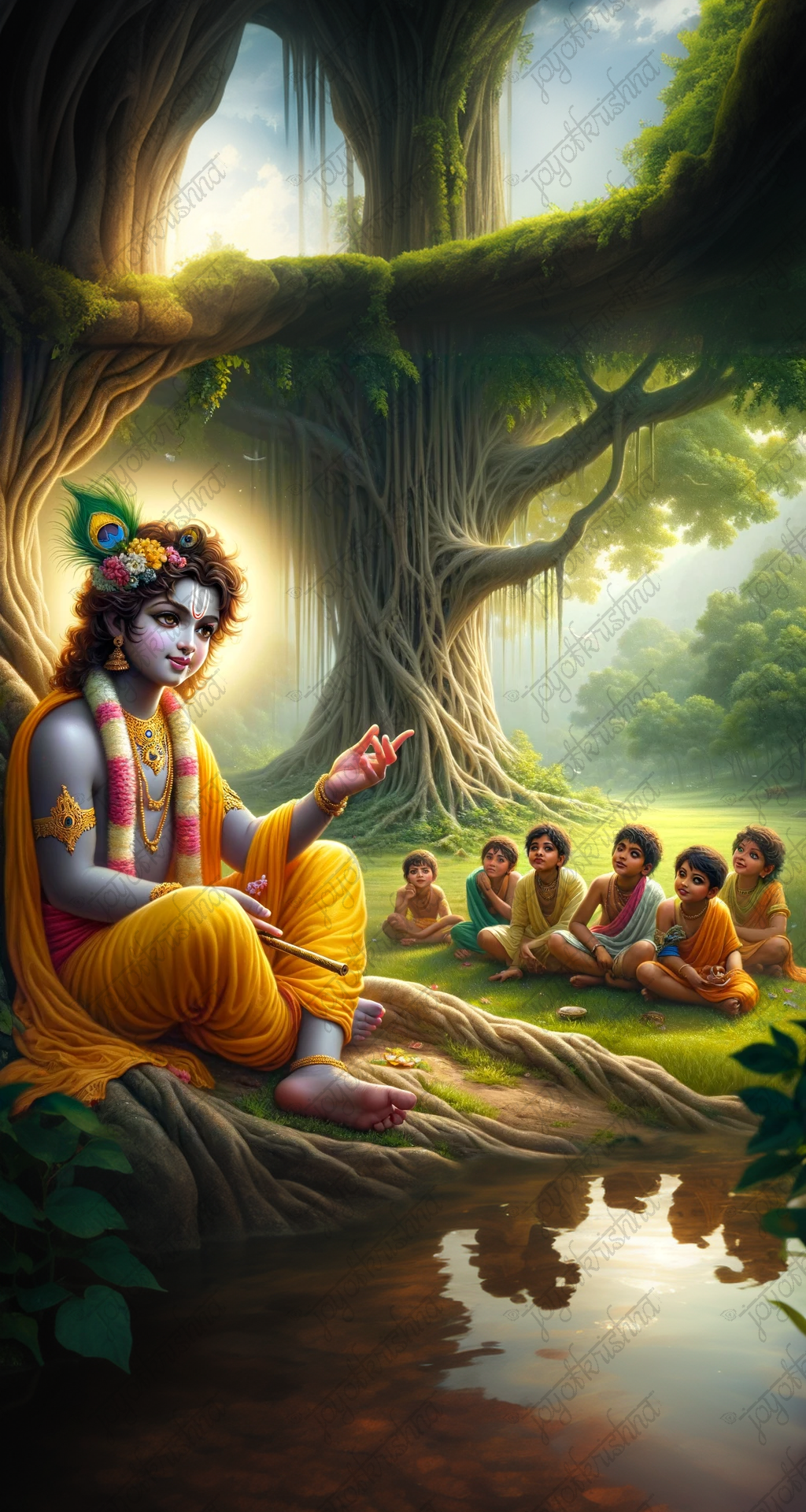
God Krishna, the eighth avatar of Lord Vishnu, is one of the most revered and beloved deities in Hinduism. His life and teachings have had a profound impact on Indian philosophy, art, literature, and culture. Born in the city of Mathura, Krishna was the son of Devaki and Vasudeva, and his birth was marked by a series of miraculous events. As a child, Krishna was known for his mischievous pranks and his extraordinary abilities, which included lifting a massive mountain on his little finger to protect his people from a devastating flood. As he grew older, Krishna became a skilled warrior and a master of the ancient Indian art of archery. He was also an expert in music and dance, and his flute-playing skills were said to have the power to mesmerize and enthrall all who listened. Krishna’s teachings, as recorded in the Bhagavad Gita, emphasize the importance of selfless action, devotion, and spiritual growth. He taught that the ultimate goal of human life is to attain liberation from the cycle of birth and death, and to achieve this, one must cultivate a deep sense of detachment, self-awareness, and love for all living beings. Krishna’s message of love and compassion has inspired countless devotees throughout history, including famous saints and mystics like Mirabai, Kabir, and Chaitanya Mahaprabhu. His legacy continues to be celebrated in various forms of art, literature, and music, from the classical compositions of Tyagaraja to the folk songs of rural India. In the realm of philosophy, Krishna’s teachings have influenced some of the most important schools of thought, including Advaita Vedanta, Vishishtadvaita, and Dvaita Vedanta. His concept of “nishkama karma” or selfless action has been particularly influential, inspiring leaders like Mahatma Gandhi to adopt the principles of non-violence and non-attachment in their struggle for Indian independence. Despite his divine status, Krishna is often depicted as a relatable and accessible figure, who is willing to engage with humans and share in their joys and sorrows. His iconic image, with its characteristic blue skin, yellow robes, and crown of peacock feathers, is instantly recognizable and has been reproduced in countless works of art, from ancient temple carvings to modern paintings and sculptures. Throughout the ages, Krishna has remained an integral part of Indian culture and consciousness, a symbol of the country’s rich spiritual heritage and its enduring values of love, compassion, and selflessness. As a divine being, Krishna continues to inspire and guide millions of devotees around the world, offering them a path to spiritual growth, self-realization, and ultimate liberation.